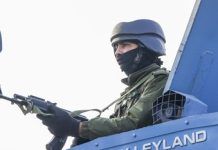An international report by Action on Armed Violence organization has revealed that India reported 264 incidents of blasts by improvised explosive devices (IEDs) or crude bombs between 2011 and 2016. Some of the worst-affected areas, according to security agencies, include Naxalite-dominated corridors and insurgency-hit areas in different states. Central Reserve Police Force (CRPF) has signed an MoU with Institute of Forensic Science (IFS), Gujarat Forensic Sciences University (GFSU). According to the MoU, the agencies will apply forensic science to track explosives and build capacity of officers involved in investigations.
The MoU was signed by Dr M S Dahiya, director, and Dhirendra Verma, principal, Institute of IED Management, in presence of Rajkumar, IGP, Western Sector, CRPF. “The institute imparts training and expertise to all the forces in the country. One major challenges faced by the forces is tracking material including explosives used in IEDs. The collaboration will strengthen the prevention and detection of IED-related incidents in India,” said Rajkumar.
Dr Dahiya said that as agencies gain expertise, the perpetrators also try to devise new ways to use materials which cannot be traced easily . “Since Ahmedabad witnessed the serial blasts using IEDs a decade ago, the field has changed drastically with different factions using different technologies to assemble and detonate IEDs. We had a discussion on different aspects of post-blast investigation and areas where we can collaborate,” he said.








